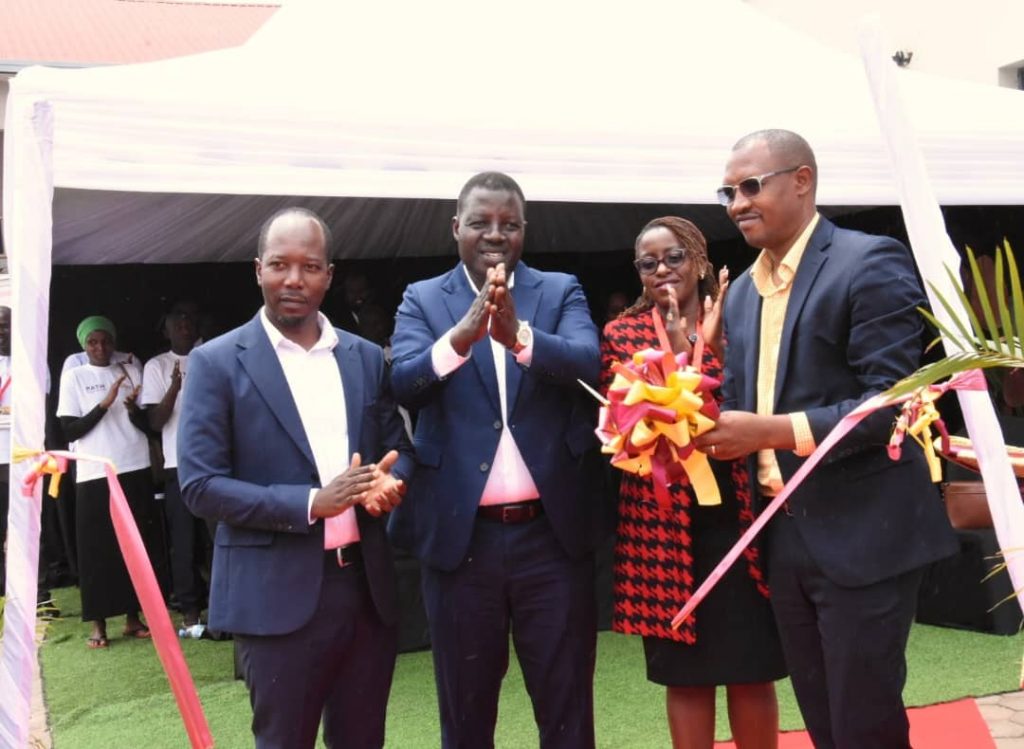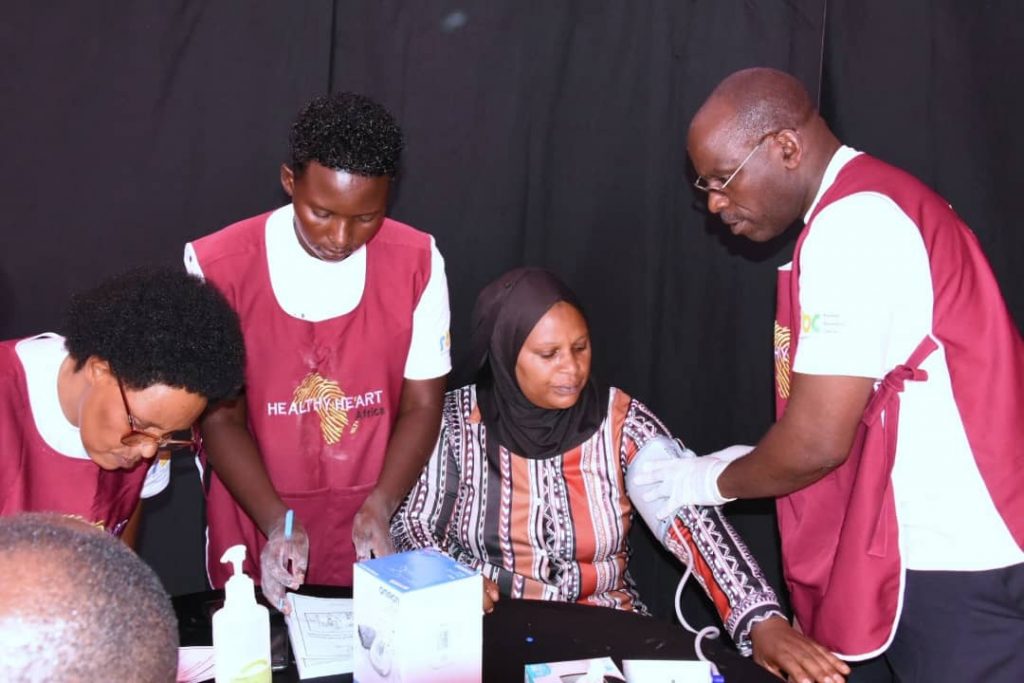Rwanda: AstraZeneca launches Healthy Heart Africa Expansion 2.0 in Kabarore
4 min read
By Telesphore KABERUKA
AstraZeneca launched Expansion 2.0 of the Healthy Heart Africa (HHA) programme today at Kabarore Health Center in Gatsibo District, Eastern Province of Rwanda, rolling out a coordinated push to address the growing burden of chronic kidney disease (CKD) in the country. Initially focused on hypertension, HHA will now broaden its scope to include CKD alongside cardiovascular disease. The launch was held in partnership with the Rwanda Biomedical Centre (RBC), PATH, and other local health stakeholders.
This expansion comes at a critical time, as kidney disease affects more than 850 million people globally. Africa, where prevalence is estimated at 15.8%, is disproportionately impacted. The initiative also aligns with the recent World Health Assembly resolution on kidney health, which calls on governments and partners to prioritize early prevention, screening, and treatment of CKD as part of the global non-communicable disease (NCD) agenda.
At the launch, Deepak Arora, Country President for AstraZeneca’s Africa Cluster, said that HHA is not just a programme but a scalable model for strengthening primary health care systems, built on the power of public-private partnerships. “By embedding prevention, early detection, and treatment into primary care, we are supporting Rwanda’s national health goals while contributing to Africa’s Agenda 2063 and the global push for universal health coverage. This is how we accelerate meaningful, lasting progress,” said Arora, speaking virtually.
According to Dr. Florence Sibomana, Senior Program Officer for Non-Communicable Diseases at PATH Rwanda, the expansion will widen screening coverage, train primary-care workers in NCD management, and accelerate the integration of digital patient data into Rwanda’s health information systems.
“We are proud to partner with AstraZeneca on this important initiative. Expanding HHA to include kidney care will allow us to leverage our community-based approaches and health system expertise to ensure more people at risk can access the care they need. Together, we are working to reduce the impact of chronic diseases on families and communities across Rwanda,” added Dr. Sibomana.

At the colorful launch, Dr. François Uwinkindi, Head of the NCDs Division at the Rwanda Biomedical Centre, praised the programme’s scale and impact and urged citizens to take action.
“The expansion of AstraZeneca’s Healthy Heart Africa initiative to include chronic kidney disease is both timely and vital. As non-communicable diseases continue to rise, integrating CKD prevention and management into our health system is crucial to protecting lives,” said Dr. Uwinkindi.
According to Dr. Uwinkindi, Rwanda is highly committed to tackling NCDs through a decentralized approach that emphasizes early detection, enhanced capacity building for health care workers, and financial accessibility through a community-based health insurance scheme. “In line with this, we have partnered with Healthy Heart Africa and PATH to develop national training manuals for health workers in local health centers and hospitals, enabling them to better screen for and diagnose chronic kidney disease earlier,” he concluded.
He also called on Rwandans to make use of the free services on offer and stressed that early testing and timely diagnosis are the most effective ways to reduce premature deaths from NCDs. “Prevention is better than cure,” he advised.

At the launch, local community health workers (CHWs), an essential delivery arm for the expansion, pledged to mobilize at the grassroots level.
Vestine Mukandahiro, a CHW from Kabarore, told Family Magazine: “We are committed to serving our communities by bringing information and services closer to the people.” Her comment highlights the organizers’ strategy of leveraging Rwanda’s large CHW network to boost screening and linkage to care.
Organizers expect Expansion 2.0 to screen thousands more residents of Kabarore District and to link those diagnosed with kidney disease to sustained care pathways.
RBC reiterated its national target to reduce premature mortality from NCDs by one-third before 2025, positioning the AstraZeneca-led expansion as a significant contribution toward that goal. “Our vision is to reduce premature mortality from non-communicable diseases by one-third before 2025. Initiatives like Healthy Heart Africa are helping us achieve that goal,” Dr. Uwinkindi emphasized.
With Expansion 2.0 now active in Gatsibo district, health authorities hope to screen thousands more citizens in the district and link them to treatment where necessary.
Residents of Kabarore and surrounding communities were reminded that the fight against non-communicable diseases (NCDs) starts with awareness, early screening, and healthier lifestyle choices. Speaking at the event, Jean Leonard Sekanyange, the Vice Mayor in charge of Economic Development in Gatsibo District, stressed that prevention is the most effective approach to safeguard lives and reduce the growing burden of NCDs.
“For residents of Kabarore and beyond, the message is clear: NCD prevention begins with awareness, early testing, and lifestyle change”, said Sekanyange Jean Leonard.
AstraZeneca is a global, science-led biopharmaceutical company dedicated to the discovery, development, and commercialization of prescription medicines in Oncology, Rare Diseases, and Biopharmaceuticals, including Cardiovascular, Renal & Metabolism, and Respiratory & Immunology. With operations in over 100 countries, AstraZeneca’s innovative medicines are used by millions of patients worldwide.



